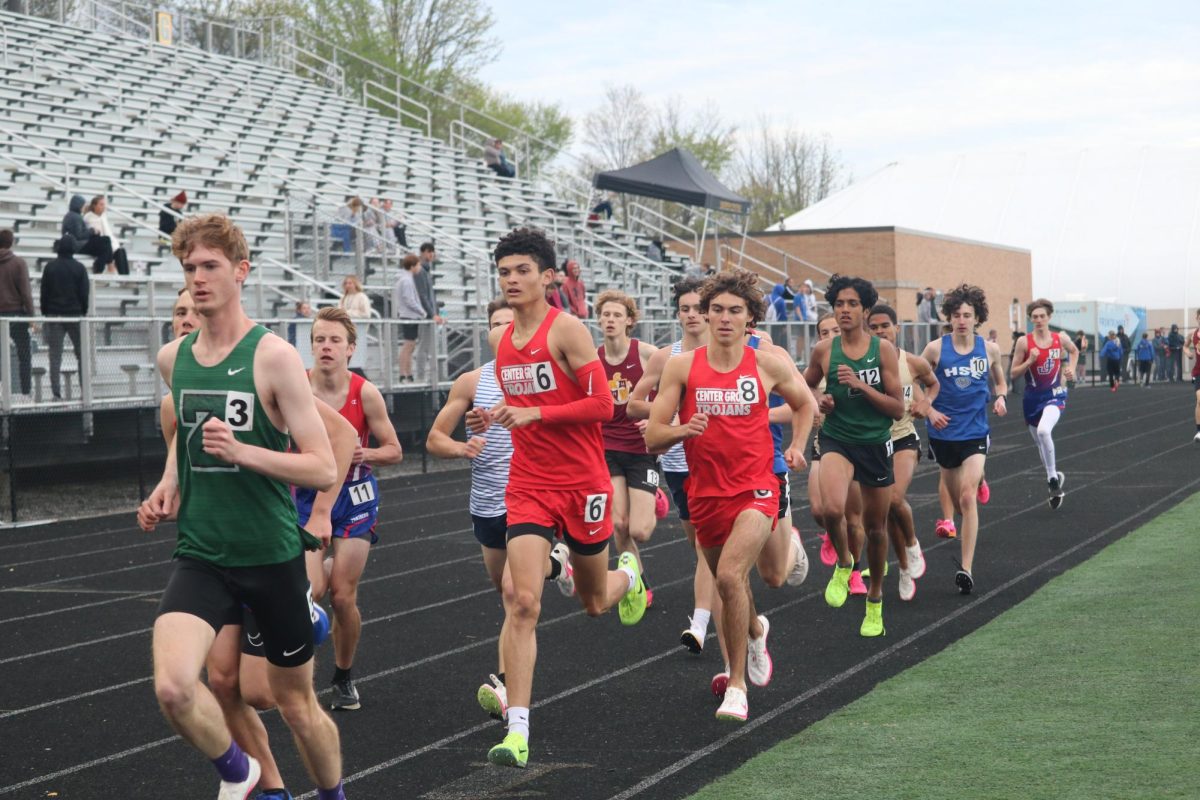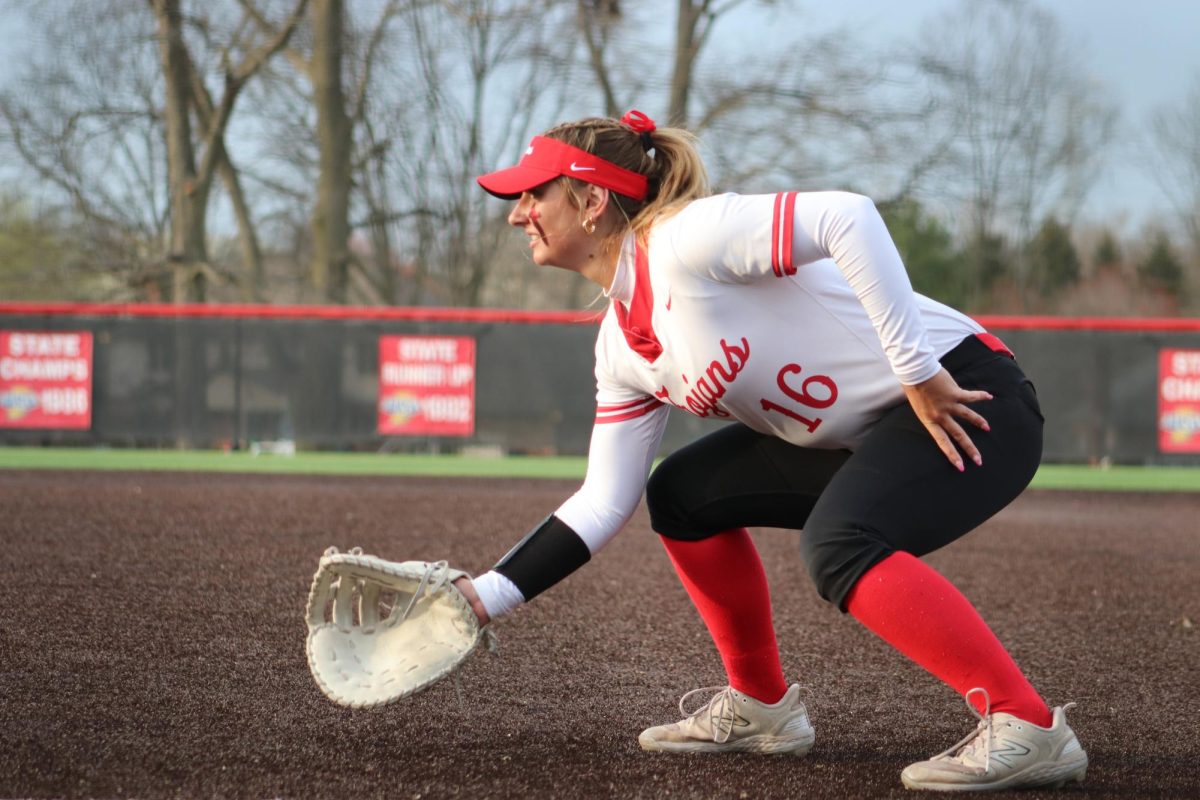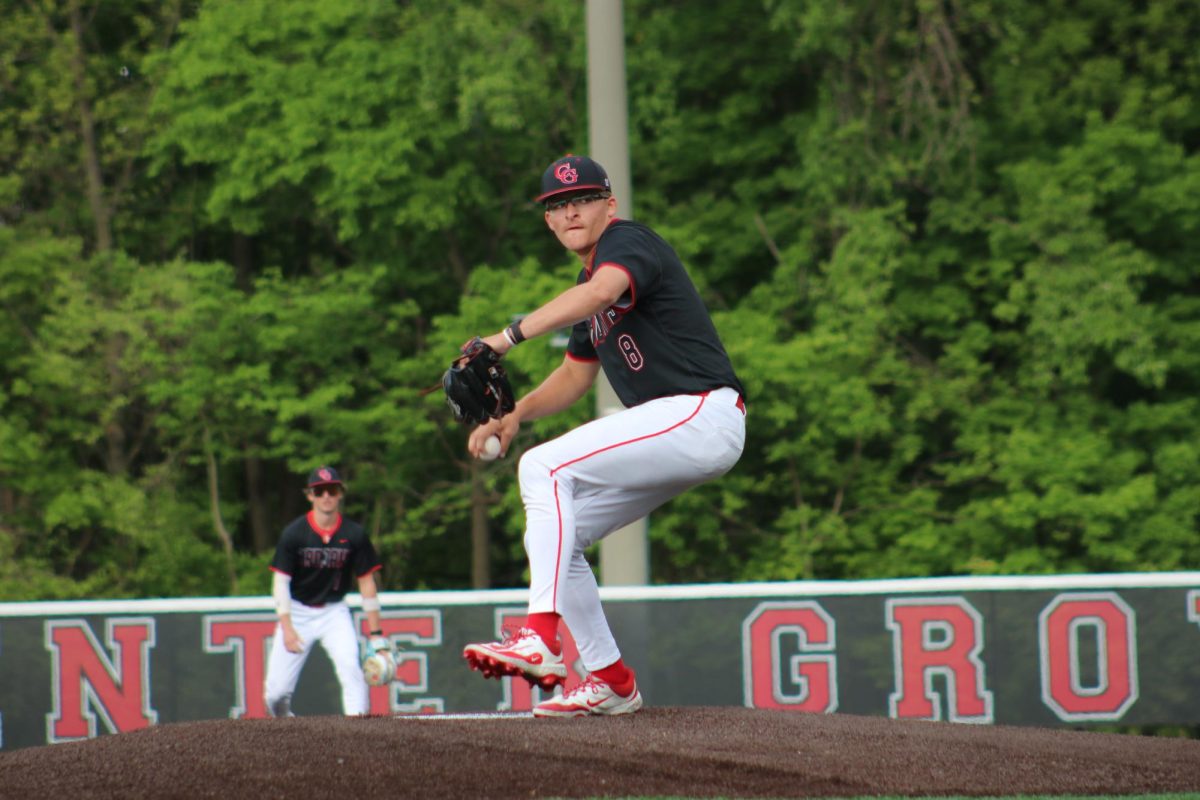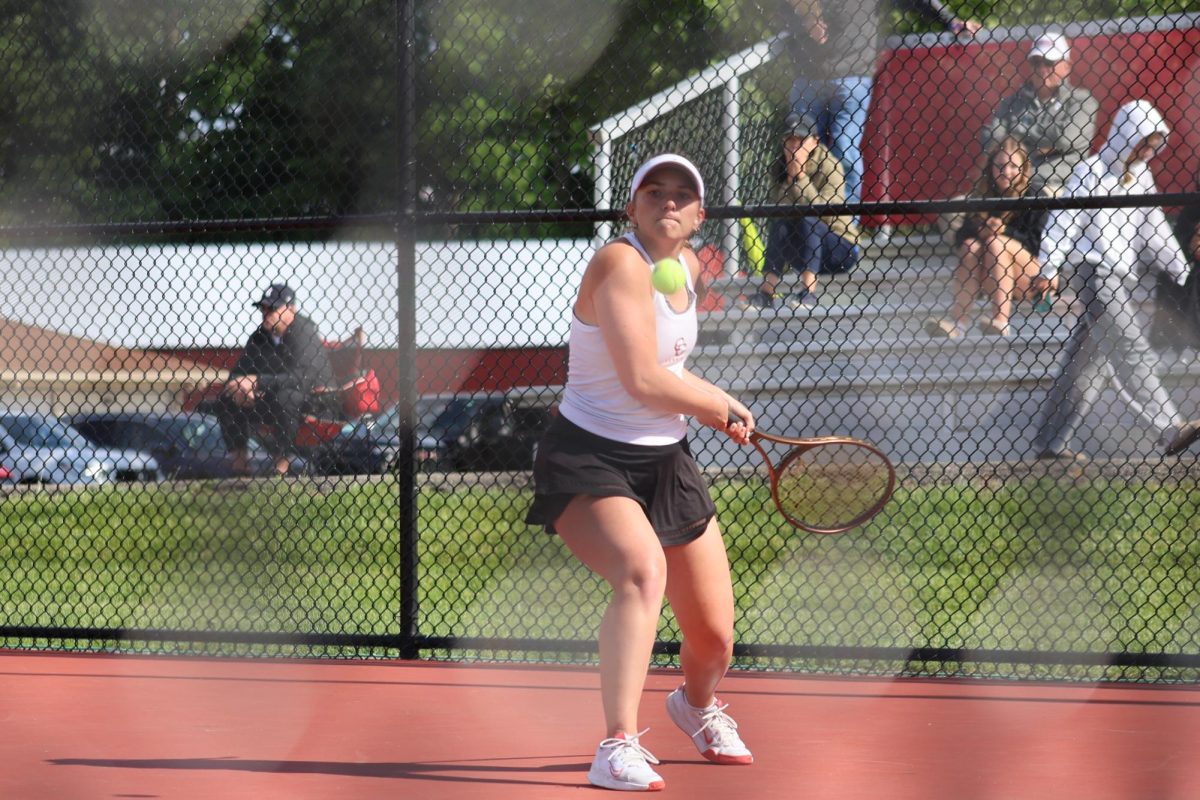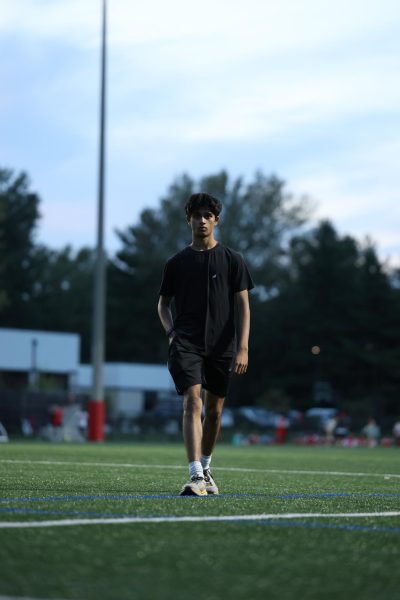Fate can be fickle.
Sitting in the waiting room of St. Francis hospital, junior Mason Vrshek’s fate is up in the air. Countless unfinished workouts, constant fatigue, and the burden of underperformance beleaguering his young shoulders. Little does he know, the news he is about to receive will change his athletic career for good.
Years before this moment, a younger, seventh-grade version of Vrshek started his journey in the world of cross country, where he was met with immediate adversity.
“In seventh grade I ran over the summer because I wanted to run cross country because I had friends there, so that’s how I got into longer distances,” Vrshek said. “I was really, really bad. I didn’t really know what I was doing. I was running like 1 mile everyday, and once I got to school workouts, they were running more and doing actual workouts. I did those in seventh and eighth grade and that helped me get a little bit better in middle school and freshman year.”
Vrshek would continue his passion for running through the high school team, concluding his freshman year with a 2:19 PR in the 800, setting himself up for improvement in his sophomore year. However, this path took a slight detour in the middle of his sophomore year cross country season.
“In sophomore year, I was getting really fatigued and I really sucked at running,” Vrshek said. “I just felt tired every day and I couldn’t finish our runs, and I really didn’t know what was up. I asked Coach Harrell, and he thought I should get my iron checked and make sure I’m sleeping enough, and getting enough water.”
This was the moment in which Vrshek found himself on a doctor’s visit, where he was told about his low iron level. According to a study conducted by the National Heart, Lung and Blood Institute, an iron level between 10-30 micromoles per liter is normal for an adult male. Vrshek’s iron level was below 2 micromoles per liter, leading to an immediate anemia diagnosis.
“After I got my iron checked, they found out that it was the lowest they’d ever seen,” Vrshek said. “I was never admitted, but I had to get a lot of doctor’s visits. I took a break from running for a week, and I was just trying to get [my iron level] up, so I took as many supplements as possible. I kept running after that, but it was way less than everyone else, [until] I gradually built myself back up.”
The results were not immediate for Vrshek, however, and it took a lot of work through constant conditioning and running for him to see a noticeable improvement.
“It definitely took a long time, probably took a few months before I even noticed it, but once I did, it was so evident,” Vrshek said. “I had way more energy after that. Winter track, [in my] sophomore year, was kind of when I improved a lot. I was running 2:09s and then by the end of the season, I got it down to a two flat. It was a lot of focus and working harder in the winter workouts.”
Despite improving his iron levels, Vrshek still had to overcome mental and physical obstacles to reach the form and shape he is in now.
“The start of sophomore year, I was better than freshman year by a lot, but I was just running 2:09, 2:09, 2:09, and other people were also running 2:09, but I was faster than them,” Vrshek said. “I was really mad. I was just like, “Why can’t I run faster than 2:09.” Then, I just kept putting in the work, and at indoor state, I ran a 2:03, so that was a big improvement and a big day.”
This season, Vrshek has logged a 1:59.54 800 meter time, leading to a first place finish in the Johnson County championship, and a third place ranking in the Trojans’ sectional. However, this season, he also took part in the 1600m race for the first time in his high school career, leading to a first place finish in the Dennis McNulty Invitational.
“I’ve been asking my coach to put me in the mile for a long time because I’ve just been running the 800 for most of the time, and I wanted to try out the mile,” Vrshek said. “I asked him to put me in the two mile too, but there was only an open spot in the mile, and it went really well. I’ve never run the mile before but I won that race and now I also have one of the leading times in Indiana right now.”
With a third place ranking in the Trojans’ sectional in the 800m race, and a second place ranking in the 1600m race, Vrshek will be looking to turn these early season performances into postseason success.
“I just look at where else there is to go. I still have to be faster. I’m not a lock for state yet, it’s pretty close, but I still need to work a little bit harder to make sure I’m a lock to go to state for the open 800 meter race,” Vrshek said.
Primed to make a deep run in the postseason, something he could not have imagined sitting in a doctor’s office a year and a half ago, Vrshek’s work and determination will be a factor in his continual battle against fate. The same fate that threw at him an alarmingly low iron deficiency. The same fate that kept telling him to quit, to stop running, when his performances did not match his form.
That same fate, however, has put him in a position to pursue a comeback story in the sport he loves. The same fate has placed him in the top three in his sectional for the events he’s run.
It’s strange. Fate can be fickle, after all.


